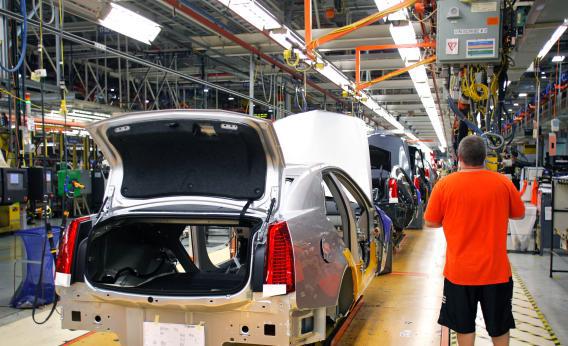One of the most dangerous narratives to come out of the campaign was the idea that the unpopular-at-the-time auto bailout had given President Obama a valuable electoral boost in the midwest that played a key role in his re-election. It’s a dangerous narrative not because the auto bailout was so bad—contrary to my contemporaneous opinion it worked out fine—but because it’s a bad precedent. You don’t want future presidents thinking that any time a major employer in a swing state gets into trouble that a bailout is going to be electoral gold.
But Nate Cohn finds that Obama didn’t do unusually well with white working class voters in Ohio, he benefitted from a huge black turnout in Ohio.
And then there’s this from Michael LaCour:
It measures the state-level swing relative to the national swing. Alaska, Mississippi, Louisiana, Rhode Island, and New York are the states that got most relatively friendlier to Obama. Utah, West Virginia, Indiana, North Dakota, and Montana are the states that went the other way. And Michigan is there on the negative swing side of the chart. The epicenter of the auto industry, in other words, is a place where Obama’s support declined by an above-average amount. That doesn’t prove anything regarding the bailout, of course, but it’s certainly the opposite of what you would expect if it gave him a huge boost.
Now an enormous caveat. The overall state of the national economy is important to any president’s reelection bid, so insofar as the auto bailout boosted the overall economy that’s a big help to Obama. But if that’s the story, then it’s just a basic “pro-growth economic policies are helpful” lesson rather than a “targeted economic interventions have huge local benefits” story.
